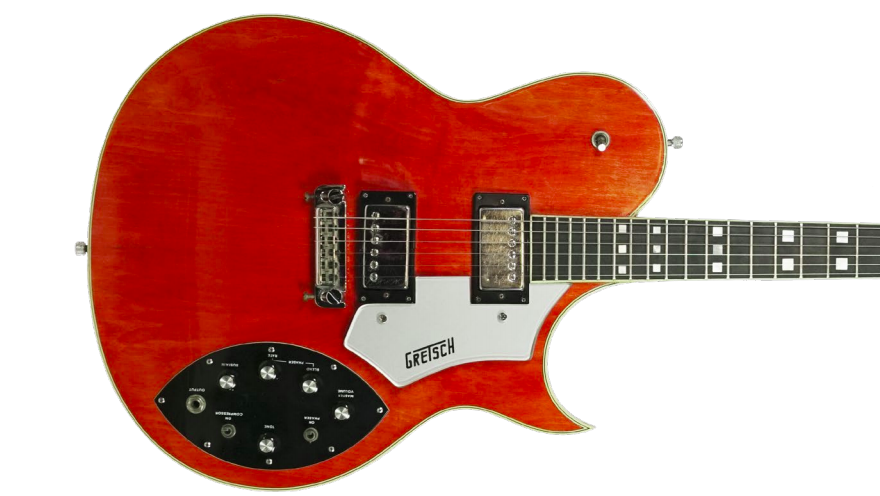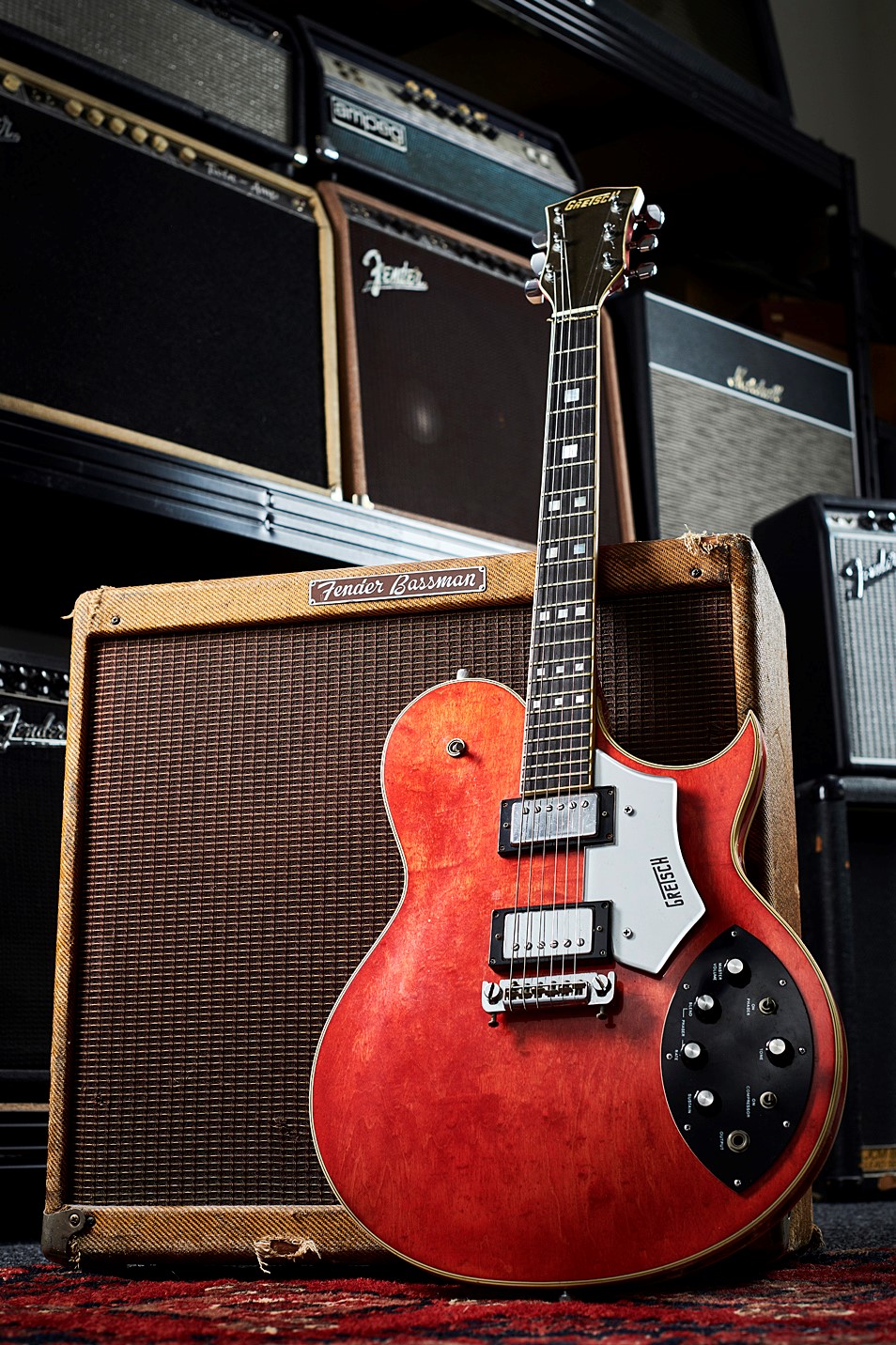Whack Job: Gretsch 7680 Atkins Super Axe
This late ‘70s rarity is a choice of ax for Johnny Marr.

“Nobody knows more about electric guitars than Chet Atkins. And nobody makes better guitars than Gretsch.” So said a 1977 magazine ad for the Gretsch 7680 Atkins Super Axe. As it turns out, this guitar actually is special and considerably different from what had become the Gretsch norm. This was the fabled picker’s last build for the company, coming after the Nashville, Tennessean and Country Gentleman models he helped design.
It’s not clear how much of a hand Chet had in the Super Axe. Some suggest the guitar was a collaboration with Duke Kramer, who was Gretsch’s business manager (among other things) at the time. The aforementioned ad quotes Chet as having said, “In all modesty, I think my new Super Axe is the ultimate guitar for the rock guitarist,” but of course he would take credit for a guitar that bears his name. Besides, it’s just ad copy.
Whatever the truth, the Atkins Super Axe is all about sustain. It sports a large but slender solid mahogany body, humbucker-style pickups and, quite unusually, a built-in compressor and phaser that are powered by a nine-volt battery.

Weirdo Factor
For one thing, it doesn’t really look like a Gretsch. That said, it’s strikingly beautiful and sports a familiar clear orange stain, one of three available finishes, along with grey and brown. The solid mahogany body is wide but thin, with thick cream binding on both sides that tapers toward the edge, giving the impression that the front and back are arched.
While beautiful to look at, it also makes the guitar more comfortable to play and lighter – at about seven pounds – than you might expect, given its size. But the truly weird factor here is the built-in effects. This wasn’t exactly innovative – Vox had done something similar years earlier – but it was decidedly unlike Gretsch.
Playability & Sound
Being a Gretsch, the guitar plays and sounds as great as it looks. The phaser is musical and has blend as well as a depth/speed control. The compressor sounds as good, if not better, than anything available back in the day and stands up to any stompbox compressor I’ve heard. Overall, the Super Axe sounds very, if you will, Nashville-ian in a clean setting, but has great sustain with a distortion box, thanks to the compressor circuit’s sustain control.
The glued-in maple neck is slender and fast and has an ebony fingerboard with cool square inlays and 22 medium-jumbo frets that are neatly dressed into the binding to eliminate sharp edges. The Japanese-made humbucker-style pickups sound nice but not great due to their fairly low output and lack of a distinctive sound. They are governed by just one volume and tone control, presumably to make room for all the other knobs and switches.
All the latest guitar news, interviews, lessons, reviews, deals and more, direct to your inbox!
The intonatable bridge is a simple one-piece Badass wraparound, and the tuners are German-made high-ratio Schallers that still work as smoothly as the day they were made.
Value
At the time of its release in the late 1970s, the Atkins Super Axe cost close to a thousand dollars, which is what you might have paid for a Les Paul Custom. Today, these beauties command only about $1,500 at auction. That’s a small price to pay for an excellent, American-made vintage guitar.
Why it Rules
Produced for only a year or two, the Gretsch Atkins Super Axe doesn’t sound or look like any other guitar out there, and is light, easy to play and versatile. The effects sound great and are easily accessed from the football-shaped control panel.
Check out more great Gretsch guitars here.
